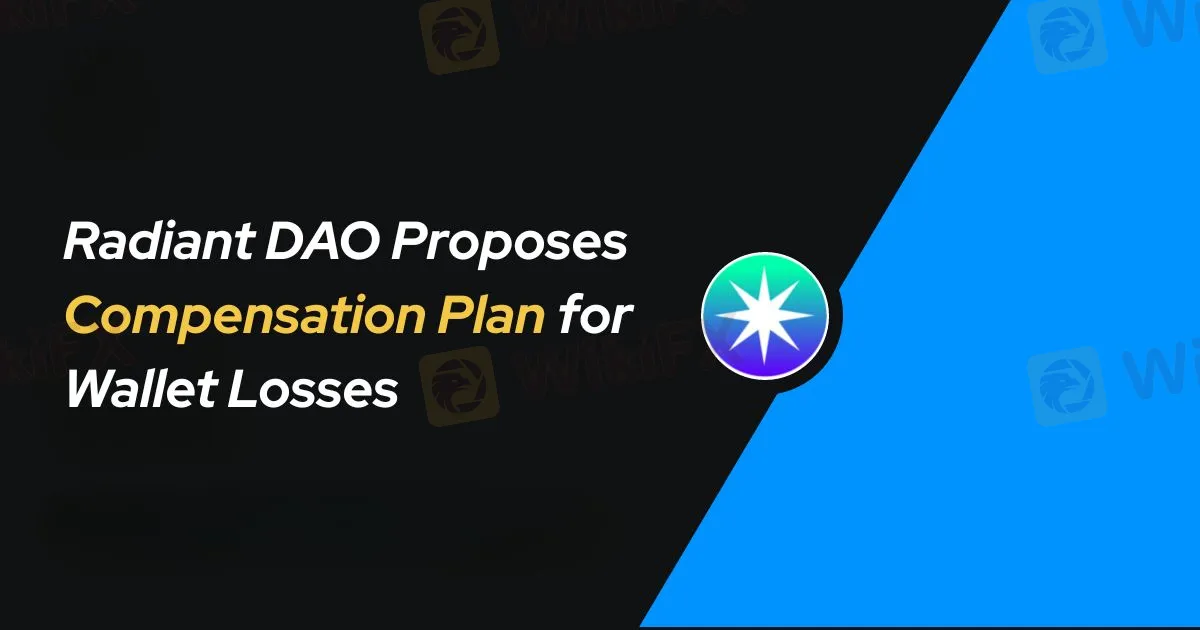Radiant DAO Proposes Compensation Plan for Wallet Losses
Abstract:Radiant DAO, a blockchain-based lending platform, has introduced a new proposal to compensate users who lost funds due to a wallet approval flaw in late 2024 and early 2025. The issue allowed hackers to take tokens from users’ wallets that had previously given Radiant contracts permission to use their funds.

$8.9 Million in Reported Losses
According to Radiant‘s internal estimates, about $7.7 million was lost in the final quarter of 2024, with another $1.2 million lost in early 2025. These losses came from users who left an “unlimited approval” setting on, which gave Radiant’s smart contracts open access to their wallets. Hackers exploited this by hijacking the contracts and moving funds without user permission.
To address this, Radiant has suggested a refund plan. Users would receive part of their missing funds back, paid out over time through a special claim system. The refunds would be given in stablecoins (crypto tokens that follow the price of real-world money like the U.S. dollar), and very small balances under $10 may not be eligible due to high processing costs.
Claims Will Be Handled Through a Web Portal
Radiant plans to launch an online platform where affected users can check if they qualify, and later file a claim. The system will be built in stages, starting with a “view-only” tool before enabling real claims. Each users payout will be based on their share of total losses.
Payments will happen gradually, depending on Radiants available funds. If the project successfully recovers any stolen crypto in the future, it plans to divide that money fairly between affected users.
Community Approval Still Required
The compensation plan still needs a community vote to move forward. If approved, Radiant will begin building the claim system and continue updating users as progress is made. The repayment process may take years and could be delayed if Radiants partners fail to support the funding.
This plan follows earlier efforts by Radiant to refund other groups of users impacted by past platform issues. Affected users and community members are encouraged to follow updates on Radiants official channels.
Read more

BaFin Issues Warnings Against Unauthorised Crypto and Investment Platforms
BaFin has recently flagged multiple websites, including stcwelt.com and mega-platz.pro, for offering financial and cryptoasset services without proper authorisation. Stay informed and protect your investments.

CryptoCurrency Regulations in India 2025 – Key Things You Should Know
Cryptocurrency has become a major trend in today’s world. Crypto Experts believe it’s the future, which is why many people are investing heavily in it. But before jumping in, it’s important for crypto enthusiasts to understand the key rules about cryptocurrency in India.

Tokenized Stocks: Innovation or Just Another Wrapper?
While tokenized stocks promise global, round-the-clock trading, many platforms only offer synthetic exposure similar to CFDs. Without shareholder rights or deep liquidity, their added value remains in question.

Crypto Craze Fizzling Out? Here is Why
The Crypto Craze among users is fading out. The wave of Cryptocurrency has slowed down. But what are the major reasons why this has happened?
WikiFX Broker
Latest News
Top Wall Street analysts are upbeat about these dividend-paying stocks
Singapore's economy grows 4.3% in second quarter, beating expectations
What WikiFX Found When It Looked Into Emar Markets
MT4 vs MT5 Which Forex Trading Platform Fits Your Needs in 2025?
Stock futures slide on more Trump tariff letters, but are off worst levels of session: Live updates
Short or Long Term: Which to Choose for Double-Digit Returns from Gold Investments?
Gold Soars Above $3,350 as XAU/USD Rallies on Trade Tensions
Asia-Pacific markets trade mixed as investors assess Trump's latest tariff threats; bitcoin hits new highs
What is Forex Trading Simulator?
Switzerland tourism boosted as women's soccer continues record-breaking rise
Rate Calc
